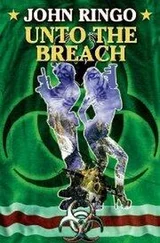Ulrika’s eyes were flashing. As a little girl in Sweden she had been sold, she knew what it meant; she had been a four-year-old orphan when she was sold at auction, to the lowest bidder. The one who had offered to take her and bring her up for eight daler a year had been a peasant in Alarum, and he had raped her when she was fourteen. The only difference between Sweden and America was that in this new country you were sold to the highest bidder, instead of the lowest; perhaps it might be considered more flattering to be sold to a high bidder, but nevertheless she would have nothing to do with it; she had left that hellhole Sweden to get freedom in America. Now she was going to take her daughter with her and escape from the ship.
“But this is a lie!” exclaimed Karl Oskar. “The captain is not a slave trader.”
“Ask your brother if you don’t believe me! He is the one who told my daughter.”
“Robert? What do you mean?”
“I’ll fetch him. Then you can hear for yourself.” And Ulrika of Västergöhl hastened to find her daughter Elin and Robert, Karl Oskar’s younger brother, dragging them with her as she returned.
“Now tell Karl Oskar what you heard!” she demanded.
Elin looked trustingly from her mother to Karl Oskar. “Robert said the captain is keeping us on board until he gets permission to sell us to the Americans.”
The youth looked reproachfully at Elin. “I only said one of the crew told me so.”
Karl Oskar turned sternly toward his brother: “Now, tell the whole truth!”
Robert’s jaw fell in embarrassment and he looked down at the worn and splintered deck: he had asked one of the seamen why they weren’t allowed to land, and the man had said they must stay until the Americans came and got them; they were to be sold at auction. Last voyage, he said, the captain had sold all the passengers to the Turkish Infidel for ten thousand dollars; this time, he didn’t wish to rush things, and that was why he kept them aboard. Last time he had sold everyone except two old, worn-out hags who couldn’t be used for work or aught else. And no complaints had been raised, for no one had had any relatives in America on whom he could call for help.
The seaman had said he was telling all this to Robert because the captain had refused to share his ten thousand dollars with the crew. The seaman was angry that he couldn’t share in the profits from the slave trade in New York, and that was why he had warned Robert and other passengers to get away from the ship before the auction was advertised.
Robert admitted he had not believed the seaman; if the captain wanted to sell people to the Infidel, he would undoubtedly have sailed to Turkey, where the Infidel lived, and not to North America. There was no sense in shipping people back and forth across the Atlantic. Moreover, Robert knew from a book he owned— Description of the United States of North America —that it was forbidden to sell white-skinned people as slaves; a person had to have curly hair, and black skin to boot, before he was allowed to be sold.
Robert had told the seaman’s story to Elin only because it struck him as funny.
“But you didn’t say it was a lie,” Elin protested.
“I thought you would know I wasn’t serious,” Robert explained in embarrassment.
Thus Karl Oskar killed the rumor. And he urged Ulrika to quiet the anxiety she had aroused in the other gullible women. Neither she nor anyone else on board need fear slave chains or sale at auction in North America. The captain was an honest man who was doing all he could to help them, he had even promised to help them get started on their way inland.
Ulrika now turned her anger on Robert: “You brat! You’re responsible for this! Karl Oskar, better keep your brother in line from now on.”
And Robert was severely reprimanded by Karl Oskar for sowing lies in the mind of a credulous girl. Suppose these stories reached the captain; then there would be trouble. Now they must go and find the man who had started the rumor.
“He isn’t on the ship any longer,” Robert said hastily.
“You just come and show me the liar!”
“I can’t find him. They say he has run away.”
Karl Oskar gave his brother a stern look; it had happened before that Robert had been caught in a lie, and it did seem strange that the man had vanished. But this time Karl Oskar let Robert off with a strong warning: If he didn’t stick to the truth he might get himself and others into great danger. He was now seventeen years old and he must begin to have some sense of responsibility; he must remember that here in a foreign land unknown dangers awaited them.
Robert felt he had been betrayed by Elin. He had told her this story about the slave trade in strict confidence. The way it had happened was this: Not far from the ship stretched a park, a real manor-house park, with tall, green, thick trees, below which lay cool shadows. But Robert was not allowed to go there, he must remain here, on this rotten ship, in the burning sun. So he had just had to talk to someone to make the time pass more quickly. This he could not explain to his older brother, but he thought Elin might have understood. He certainly would tell her no more stories if she must run to her mother and repeat them.
— 4—
The Charlotta ’s ex-carpenter entered Captain Lorentz’s cabin, stooping so as not to hit his head against the low ceiling. Long Landberg, as he was usually called, was the tallest man ever to sign on this vessel — almost seven feet. His lengthy arms hung loosely against his narrow body. A well-trimmed full beard half hid his healthy smile.
The captain greeted him with a warm handshake. “Any news since last time? This infernal heat is the same.” He could easily see that the man he had sent for was eager to unburden himself, and even before Landberg sat down he began: “Yes, I have news this time. You haven’t heard, then, Mr. Captain? Wheat-flour Jesus is dead!”
Lorentz stared at him.
“Yes, it’s true. Wheat-flour Jesus was murdered. Last month.”
“Whom are you talking about, Landberg?”
“Erik Janson, of course. A prophet even in the old country, where he traveled about and sold wheat flour. That’s why they called him Wheat-flour Jesus.”
“The prophet Janson? Murdered?”
“Yea. He was shot like a dog at Cambridge, in the court where he had brought suit. The defendant shot him.”
The captain was not surprised by the news. He thought he had some knowledge of the handling of legal matters in this country. Perhaps, tacked to the wall of the courtroom, was the same notice he had seen in a saloon in New York: “Shoot first! Live longer!”
But he realized that the Charlotta ’s old carpenter was much excited by the happening.
Long Landberg, the apostate, continued: Erik Janson was the worst scoundrel ever to tramp the ground of North America. Landberg had seen him daily during many months and he knew the prophet’s creed. Janson called himself the new Christ and had chosen as his apostles twelve befuddled louts whom he kept in attendance, like a tyrant king. Indeed, he had been a cruel tyrant to his followers, plaguing them enough to make angels weep, if there were tears in heaven. No doctor was called for the sick; when one of the disciples lay at death’s door, unable to move toe or finger, Janson ordered him to rise up and be healthy, and if the sick one could not, Janson condemned him for sin and lack of faith. Janson, of course, was free from sin and righteous in all ways.
Once, Landberg had defended some poor sick sectarians against this tyranny, with the result that Janson had seized everything he owned, including most of his clothes. Without means, he had been unable to bring suit against the prophet. Janson had said that he was equal with God. . Well, the fact was, humanity could thank the man who had shot Wheat-flour Jesus; through this splendid deed he had freed North America from a beast. Janson, a raw, presumptuous peasant boor! Yes, said Landberg, he even looked like the Evil One, his teeth were like tusks, no doubt he was possessed by an evil spirit and had been sent into the world by the devil.
Читать дальше










